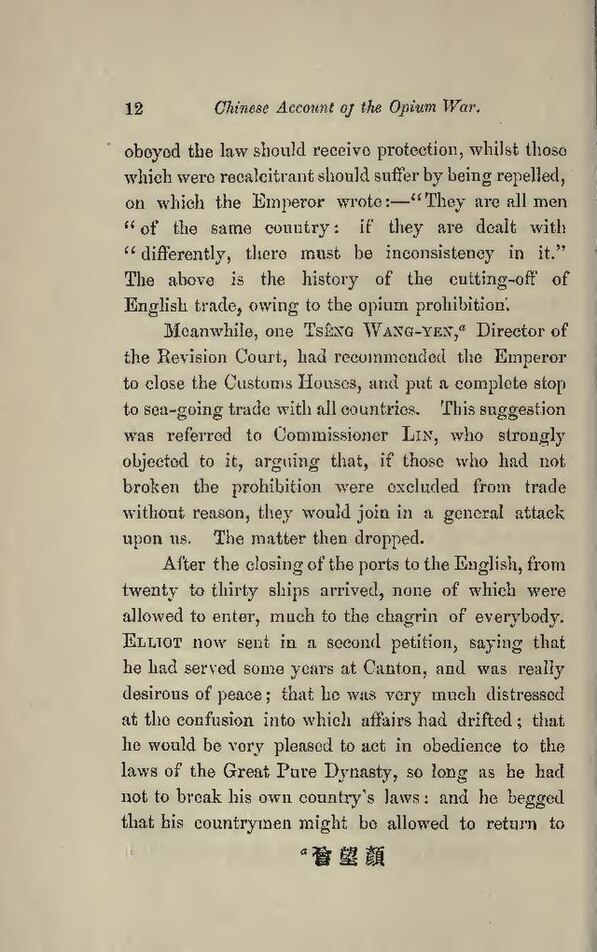obeyed the law should receive protection, whilst those which were recalcitrant should suffer by being repelled, on which the Emperor wrote:—"They are all men of the same country: if they are dealt with differently, there must be inconsistency in it." The above is the history of the cutting-off of English trade, owing to the opium prohibition.
Meanwhile, one Tsêng Wang-yen,[1] Director of the Revision Court, had recommended the Emperor to close the Customs Houses, and put a complete stop to sea-going trade with all countries. This suggestion was referred to Commissioner Lin, who strongly objected to it, arguing that, if those who had not broken the prohibition were excluded from trade without reason, they would join in a general attack upon us. The matter then dropped.
After the closing of the ports to the English, from twenty to thirty ships arrived, none of which were allowed to enter, much to the chagrin of everybody. Elliot now sent in a second petition, saying that he had served some years at Canton, and was really desirous of peace; that he was very much distressed at the confusion into which affairs had drifted; that he would be very pleased to act in obedience to the laws of the Great Pure Dynasty, so long as he had not to break his own country's laws: and he begged that his countrymen might be allowed to return to
- ↑ 曾望顏
